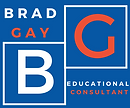Acknowledgement:
I want to acknowledge the concept of staff cafes is not a BGed concept. I simply found it intriguing and put some of my thoughts down about the benefits of staff led PD. The concept came from a discussion at a PLG I run for DP’s and AP’s. This concept was put forward by Sonya Aifai and Greg English from Porritt School in Tamatea, Hawke’s Bay.
The Concept
Staff set up and lead a cafe style professional learning environment once every two weeks to help build staff capability in a non-compulsory, non-threatening environment that utilises existing staff professional knowledge. Staff can offer topics or extension exercises to build on existing goals or identified needs. This is a highly relational and fun learning experience that sets out to empower staff whilst building capability. This staff led PD brings about great benefits and results to teaching and learning in schools.
Why is it so successful?
We have all sat through PD that has moved through concepts that some staff understand, but some staff have no idea what certain concepts look like in practice. There isn’t time to go into deeper explanations or even trial out the activities provided. The Staff Cafe concept allows staff members to attend sessions where they see the need in their own professional learning. It’s non-compulsory so staff choose to attend to develop at their own rate. If this sounds awfully like a modern learning approach to staff PD your right!
Just bringing in PLD providers doesn’t ensure success.
Bringing in subject specialists to present on curriculum, student data, behaviour management etc is only a first step. While PD models sometimes treat educators as empty vessels, staff-led learning is influenced by beliefs, experiences, and practices. Teachers must translate what they learn into practice, and decontextualized, one-size-fits-all PD makes such translation more challenging. Action needs to occur between visits to embed these techniques. The only problem is staff often feel that they don’t quite have the grasp or confidence to start this directly in the classroom. Staff Cafes can help build this capability and can compliment work done by providers or senior staff members. Additionally, empowered staff have opportunities to model for students their participation in active, participatory learning activities and may be motivated to provide similar learner-directed activities for those students.
Teachers learn as a team.
One benefit of Staff Cafe PD is that it does build teacher capacity. What is teacher capacity? According to the glossary of education reform, building capacity refers to any effort being made to improve the abilities, skills, and expertise of educators. The purpose of professional development is to improve instructional strategies, knowledge, and strength in content areas, improving classroom management, leadership skills, lesson planning and more.
Present and Teach to Strengths
When staff lead PD, they are presenting and teaching to their strengths. They are comfortable and confident in their element. It provides a chance for teachers to show what they know through their experiences and what works in their classrooms. In these moments, teachers can also receive feedback and additional ideas from their colleagues. It helps enrich staff morale and builds a culture of learning that is fun based. It also is the beginning of building teacher leadership roles in a school. When teachers feel empowered to direct their own professional development, teachers claim ownership of their work and invest accordingly. Engaged, empowered, positive teachers leads to engaged, empowered positive kids.
The Challenges of Staff-Led PD
Despite the benefits of staff-led PD, schools must be careful not to replace training approaches with an overly idealistic notions of staff-led PD. Teachers can encounter thorny challenges when they direct their learning:
Teachers don't always know what they don't know. Even the most self-aware educators may not perceive gaps in their understanding or see areas where they need to improve. Reflection and honest self-critique can sometimes help, but inevitably, outside parties must help teachers recognise their blind spots and growth areas. For instance, principals and coaches can still play important roles in helping teachers identify goals for their professional learning, even when teachers determine how they attain those goals. Teachers just like students need initial scaffolding for collaboration and leadership skills
Building Leadership, Capacity, and Empowerment
Lastly, building teacher leadership, capacity and empowerment leads to more collaboration and teamwork. Staff learning culture and relationships are enhanced when collaboration happens regularly.
Staff Cafe’s provide PD where teachers can meet, discuss their experiences with curriculum, develop new strategies, work collaboratively and celebrate successes. When teachers lead PD, they can select content they consider most appropriate and timely for their specific classrooms and personal learning needs.
Case Study

Porritt School: Te Reo Cafe
At Porritt School the teachers saw a need for developing the Te Reo of staff and they had staff that had ability in Te Reo. The school provided the Kai and the teachers lead the sessions. As time has gone on more teachers are becoming comfortable sharing their ideas with each other. Whilst not compulsory the uptake has been amazing with around a 70% turn out of staff. The school are now in the midst of developing the Techy Breakie to look at the new digital curriculum. Sonya Aifai, Deputy Principal, commented that the staff have really developed confidence in asking for help and not feeling judged. It’s all about the teachers having a forum where they can practice their Te Reo, get resources, and learn games in a non-judgemental, supportive environment.


Comments